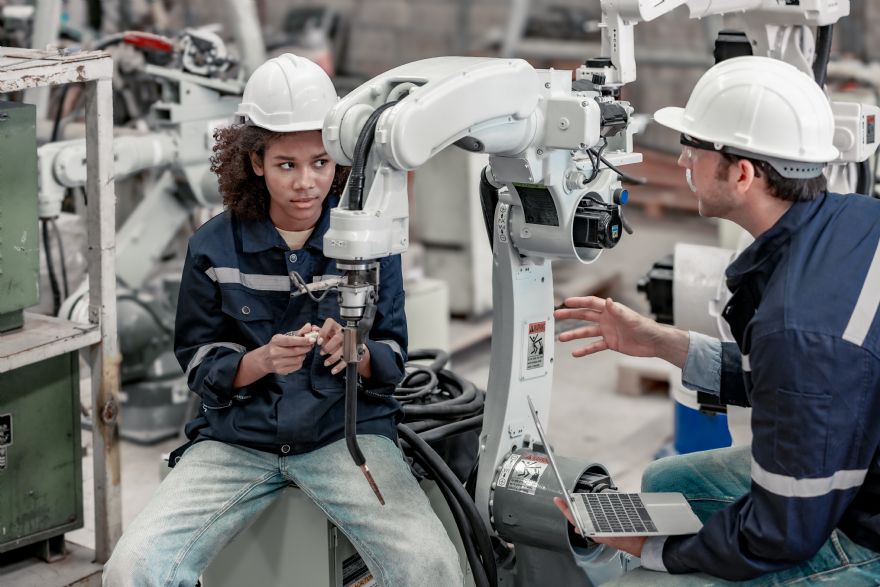
Last month, UK manufacturing body
Make UK published the findings from its
Executive Survey 2024 in partnership with PwC which show that, in spite of the challenges of recent years, there are optimistic signs about the prospects for the manufacturing industry in 2024.
Despite the sector’s share of the UK economy dwindling from 25% of GDP in the 1970s to just 9.4% last year, the survey indicates that manufacturers now largely believe they are looking towards an era of growth, setting their sights on an increase in manufacturing GDP of 15%.
More than half of companies surveyed believe the UK to be a more competitive place in which to manufacture, compared with just under a third in the same survey last year, while nearly two-thirds feel that the circumstances and the environment in which they operate are improving.
Andrew Borland, chief innovation officer at the
Virtual Engineering Centre (VEC), University of Liverpool (pictured), said: “After a difficult few years through the Covid-19 pandemic and energy crisis, it is easy to forget about the manufacturing triumphs and successes we have had as a nation over the centuries. Since setting the foundations of the Industrial Revolution in the 18th century, generations of British manufacturers have pioneered technological innovations, evolving and adapting to social, demographic, and industrial changes.”
Shift in perspectiveHe continued: “The Industrial Revolution made Britain’s economy. Today our manufacturing sector remains a dynamic and resilient force, built on a rich heritage that was hard won. Make UK’s findings indicate a shift in perspective and a renewed sense of confidence in prospects for the industry, in part thanks to a growing consensus among political leaders and a renewed sense of commitment to the sector’s long-term success.”

“Geopolitics risk, the need for environmental sustainability and a stagnating economy – all these challenges can only be tackled by prioritising a pivot back towards manufacturing. But what are the tools needed to drive this growth? How can we shape a brighter, more sustainable, and competitive future for UK manufacturing?
“Digital technology and innovation are a journey, not a destination – a constant process within the businesses, not a revolution; competitiveness and productivity enabled by technology but delivered by people’s vision and commitment.
“Embracing this future requires a concerted effort. Collaboration is key, not just within individual companies, but across the entire manufacturing landscape and in partnership with the Government which needs to hear directly from manufacturers what they need — from skills to investment.”
Government initiatives are crucial in providing funding, infrastructure and skills development but they must be informed by manufacturers. Academic and research institutions must also play their part, propelling innovation through cutting-edge research and technology transfer and working for their local industries.
Targeted supportMr Borland added: For too long innovation has been reserved for larger-scale, global businesses, who have the knowledge, workforce, and financial power to adopt new technologies. With targeted support and investment for SMEs, we have the potential to foster growth and revitalise the UK’s manufacturing industry from the bottom up.
“It is this innovation that we are supporting with our Horizons project, a partnership between the University of Liverpool’s VEC (Virtual Engineering Centre), Liverpool John Moores University (LJMU) and Edge Hill University to support business innovation across the Liverpool City Region.”
Led by the VEC, the £5.1 million Horizons programme is funded by the Government through the UK Shared Prosperity Fund (UKSPF) which will support more than 100 SMEs in its pilot phase, providing the expertise, facilities, and funding businesses need to drive innovation.
Critically, it is administered across the region in partnership with local universities that understand the nuances of regional businesses and the unique challenges and pressures they face.
Mr Borland concluded: Embracing digital technologies and innovation is a necessity for the UK manufacturing industry if it is to meet the GDP projections outlined in Make UK’s report, starting with emerging sectors and SMEs to drive upward growth.”